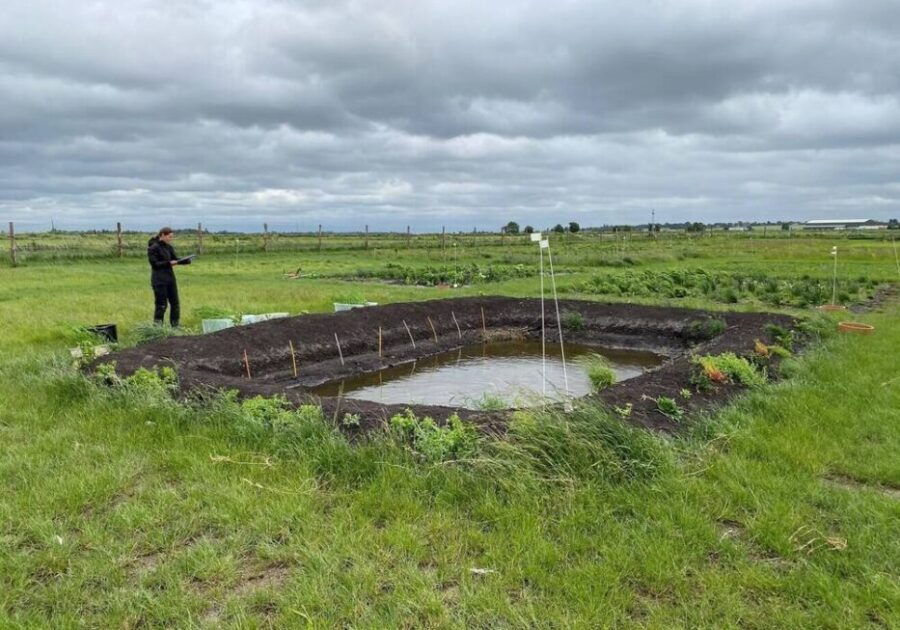UK scientists and farmers trial nine rice varieties in Cambridgeshire Fens

Fenland paddy field trial site.
In the Cambridgeshire Fens, scientists from the UK Centre for Ecology & Hydrology (UKCEH) are working with local farmers to test producing rice and other food and bioenergy crops in rewetted peat soils.
The goal is to preserve food production and farmers’ livelihoods while lowering greenhouse gas emissions from peatlands that have been degraded by agricultural use.
The Fens originally held around 150,000 hectares of peatland. As a result of drainage for agriculture, much of this peat has been lost, leaving just a thin peaty topsoil. Approximately 24,000 hectares of peat are thought to remain, but this area is continuing to decrease.
UKCEH is carrying out trials of a range of crops for food and bioenergy on rewetted peat to see if they can be grown in waterlogged conditions in the UK and investigating the benefits and trade-offs of different land uses of these sites. They include crops new to the UK such as rice as well as traditional produce including lettuce, bioenergy crops such as hybrid willow and biodiversity options including wet woodland.
Nine varieties of cold hardy rice, suited to the climate of the Cambridgeshire Fens, are being grown on the rewetted peat. The rice varieties selected come from around the world, including Brazil, Italy and the Philippines and include arborio (risotto), Dellmati (basmati) and Koshihikari (sushi) rice.
Professor Richard Pywell, the lead UKCEH scientist on the project, said: “By its very nature, this is an experiment and so it will be interesting to see how the traditional produce and novel crops like rice perform on the rewetted peat soils alongside other land use options such as biomass production and habitat for nature. We hope to be monitoring the site over the coming years to assess the long-term viability and resilience of these land use options to a changing climate.
“Our detailed measurements of the rewetted peats will include greenhouse gas emissions, carbon stocks, water use, crop yield and the impacts on nature. These will help farmers and policymakers decide on the best path to take for the Cambridgeshire Fens for livelihoods, the environment and nature.”
Craig and Sarah-Jane Taylor farm the land near Ely where the trials are taking place. Sarah commented: “Our Fenland soils are some of the most productive in the country but are very susceptible to the changing climate and we need to adapt the crops we grow and how we grow them.
“The trials are critical to understanding the practicalities of how we might go about large-scale rewetting of peat, including its impact on yields and farm income, as well as the potential wider benefits for wildlife and flood prevention.”
The rice seeds were supplied by the USDA Agricultural Research Service and propagated in UKCEH’s glasshouse in Oxfordshire. The young plants were transplanted into four specially constructed mini paddy fields on the rewetted peat trial site in early summer with the first harvest expected in October.
The rice trials research is part of the AgZero+ project, which is jointly funded by the Natural Environment Research Council (NERC) and the Biotechnology and Biological Sciences Research Council (BBSRC).



